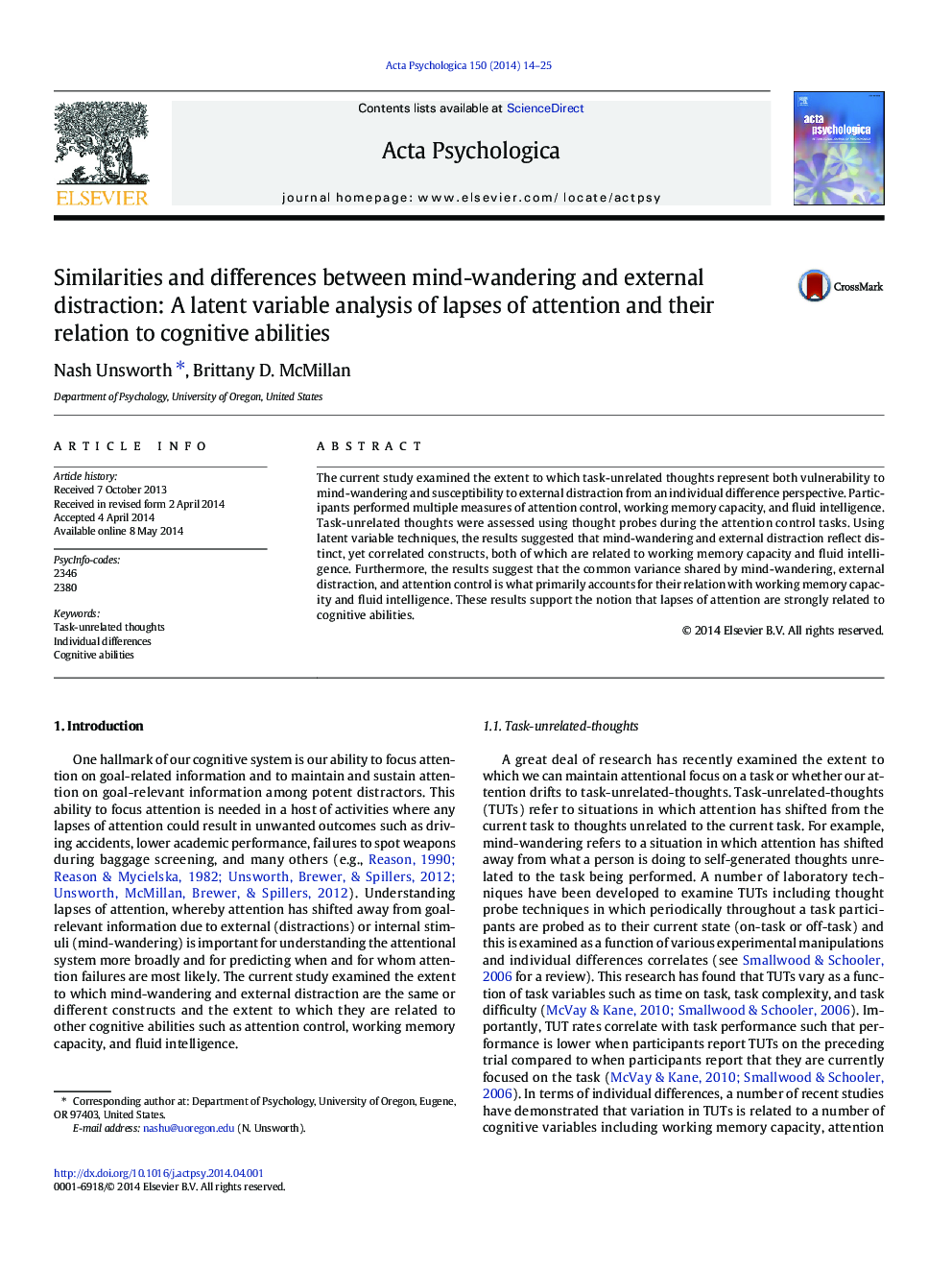| Article ID | Journal | Published Year | Pages | File Type |
|---|---|---|---|---|
| 919726 | Acta Psychologica | 2014 | 12 Pages |
•Individual differences in external distraction and mind-wandering were examined.•External distraction and mind-wandering were shown to be distinct, but related.•Both external distraction and mind-wandering were related to cognitive abilities.
The current study examined the extent to which task-unrelated thoughts represent both vulnerability to mind-wandering and susceptibility to external distraction from an individual difference perspective. Participants performed multiple measures of attention control, working memory capacity, and fluid intelligence. Task-unrelated thoughts were assessed using thought probes during the attention control tasks. Using latent variable techniques, the results suggested that mind-wandering and external distraction reflect distinct, yet correlated constructs, both of which are related to working memory capacity and fluid intelligence. Furthermore, the results suggest that the common variance shared by mind-wandering, external distraction, and attention control is what primarily accounts for their relation with working memory capacity and fluid intelligence. These results support the notion that lapses of attention are strongly related to cognitive abilities.
